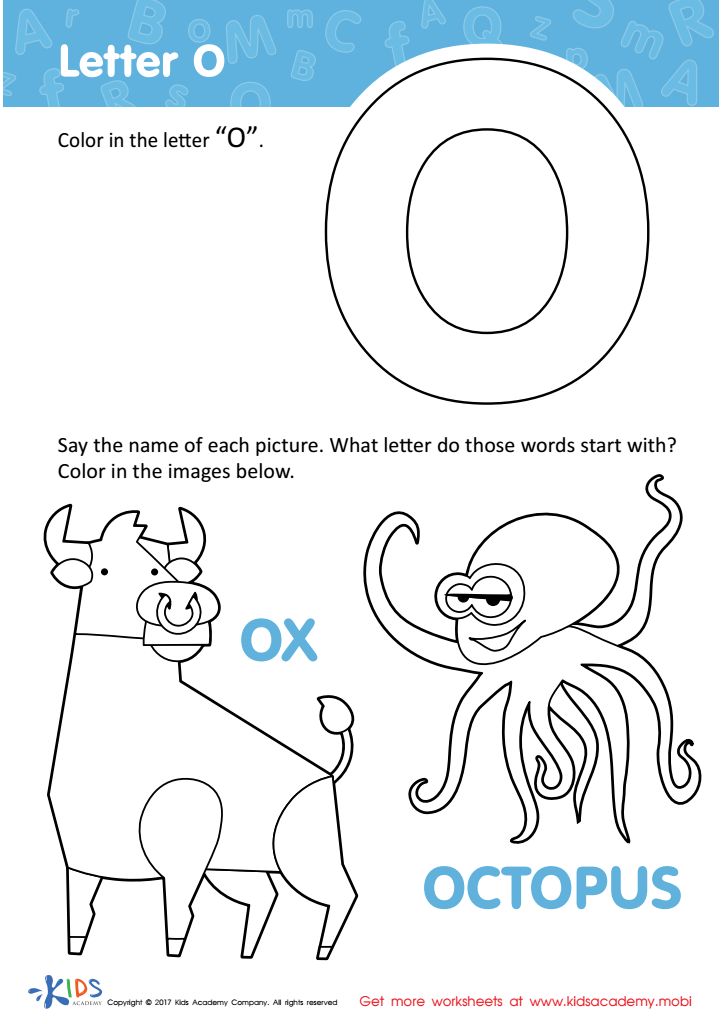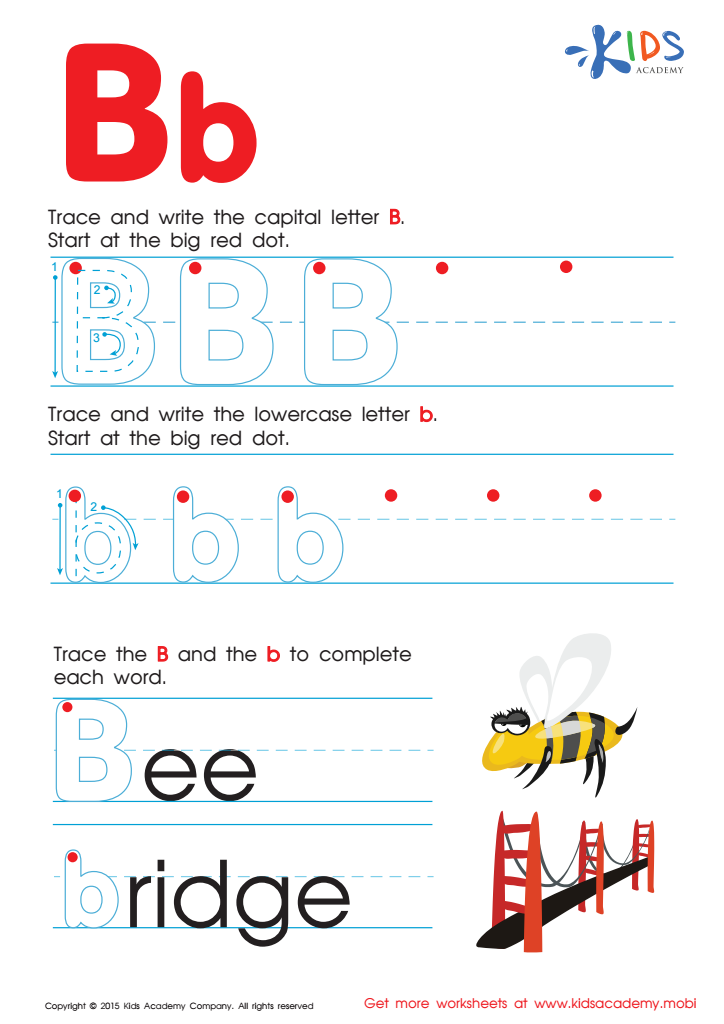Motor skills development Normal Alphabet Worksheets for Ages 4-7
3 filtered results
-
From - To
Discover our engaging "Motor Skills Development Normal Alphabet Worksheets" designed specifically for children aged 4-7. These printable worksheets focus on enhancing fine motor skills while making learning fun and interactive. Each worksheet features delightful illustrations and simple, clear activities that guide your child in tracing, writing, and recognizing letters of the alphabet. As children practice, they strengthen their hand-eye coordination and dexterity, laying the groundwork for future academic success. Ideal for both home and classroom settings, these worksheets provide a playful yet educational experience that encourages young learners to explore the wonderful world of letters. Get started today!


Letter H Tracing Page


Letter O Coloring Sheet


Letter B Tracing Page
Motor skills development is crucial for children aged 4-7, as it directly impacts their ability to learn and engage with the world around them. This stage is fundamental in building fine and gross motor skills, which are essential for activities like writing, playing, and participating in sports. As children practice these skills, they enhance their hand-eye coordination, balance, and overall physical coordination. This development is not only important for their physical abilities but also plays a significant role in cognitive development.
Parents and teachers should care about motor skills because they are closely linked to academic achievement and social interactions. For instance, proficient fine motor skills allow children to hold a pencil properly and participate in creative arts, thereby fostering self-expression and confidence. Furthermore, strong gross motor skills enable kids to engage in cooperative games, promoting teamwork and socialization.
By observing and supporting motor skills development, parents and teachers can help identify any issues early on, ensuring children receive the necessary interventions or support. Encouraging activities that stimulate these skills through play and structured learning experiences creates a solid foundation for later academic success and overall well-being. Investing in motor skills at this age consequently prepares children for a lifetime of physical and emotional health.
 Assign to My Students
Assign to My Students








.jpg)







